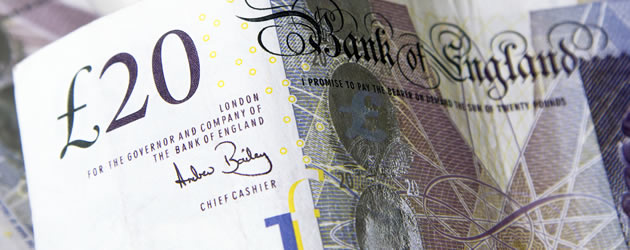- EUR Forecast to Struggle – Dovish ECB outlook weighs
- GBP Volatility Expected – Political uncertainty to drive changes
- EUR/GBP Exchange Rate Forecast to Fluctuate – Fed policy outlook may provoke movement
Euro (EUR) Exchange Rate Outlook: Fed Yellen Speech in Focus
At the close of last week’s trade the Euro advanced versus a number of its major peers after weak US labour market data prompted speculation of long-term delays to a Federal Reserve cash rate increase.
The longer the Fed delays hiking rates, the better for the European Central Bank (ECB) in avoiding widening divergent policy outlook. US Dollar weakness is also supportive of Euro strength thanks to negative correlation.
Over the coming week domestic data is likely to have a reduced impact, not just because of a lack of high-weighted publications, but also as geopolitical developments drive volatility.
With that said; German Factory Orders, German Industrial Production, Eurozone Gross Domestic Product and German Consumer Prices will be of interest to those invested in the single currency.
Speeches from ECB officials may also be impactful given the mounting uncertainty as to policymaker outlook, especially now that odds of a near-term Fed rate hike have been dramatically reduced.
US Dollar strength will also be a principle driver of Euro volatility this week. Of particular significance, in terms of US ecostats, will be Monday’s speech from Fed Chairwoman Janet Yellen. If Yellen shifts to a more dovish rhetoric in response to the dismal jobs report, the Euro could strengthen considerably.
Pound Sterling (GBP) Exchange Rate: Volatility Forecast on Political Uncertainty
With domestic data having a muted impact amid political uncertainty surrounding the EU referendum, forecasting Sterling movement has become increasingly challenging.
Volatility is likely given how sensitive Sterling is to opinion polls and speeches from high-ranking national and international officials. Will Martin, writing for Business Insider, said:
‘Britain’s impending referendum on whether it should stay in or leave the European Union is causing chaos in the country’s currency markets, sending the volatility of the British pound to its highest levels in more than seven years. The CBOE British pound volatility index — which tracks the expected fluctuations of the currency over the coming month — currently stands at 21.76, the highest it has been since the tail end of the global financial crisis in February 2009.’
Although domestic data is unlikely to be hugely impactful, there will still be several publications traders will look out for to gauge the UK’s economic outlook.
Industrial Production, Manufacturing Production, RICS House Price Balance, Total Trade Balance and Construction Output will all be of interest to traders.
Whilst the Pound did find some near-term support from better-than-expected services growth last week, the UK continues to struggle against weak sectoral growth. Many analysts fear that Britain will face a marked economic slowdown in the second-quarter irrespective of the EU referendum result.
Over the past week the Euro to Pound Sterling (EUR/GBP) exchange rate was trending within the range of 0.7578 to 0.7809.



